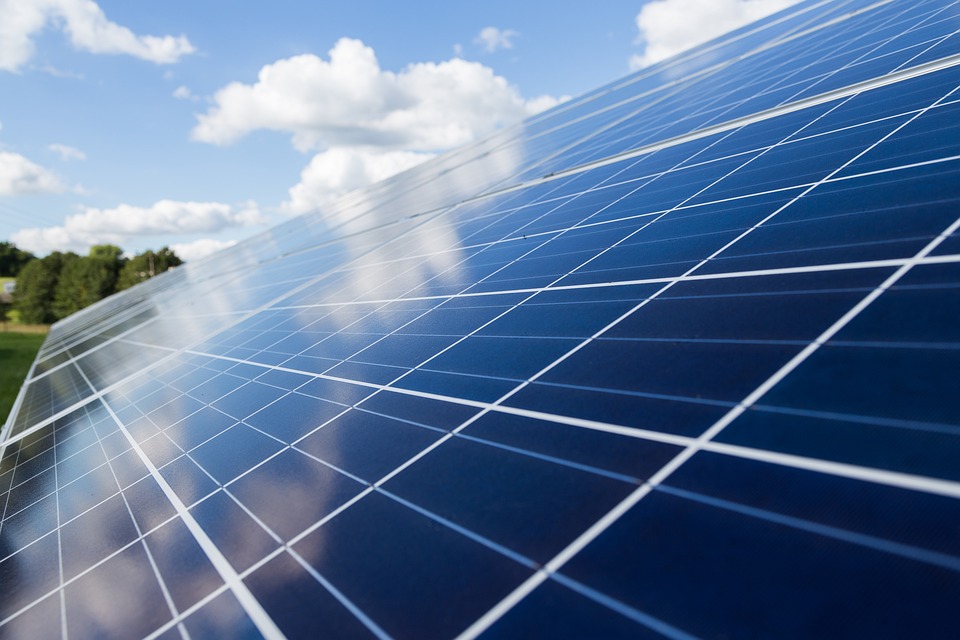Optimizing Grid Efficiency: Strategies for a Sustainable Future
Introduction
The global energy landscape is undergoing a significant transformation, driven by the need for sustainable and renewable energy sources. As the world transitions to a low-carbon economy, optimizing grid efficiency becomes a crucial strategy for ensuring a reliable and efficient supply of energy. In this article, we will explore the importance of grid efficiency, the challenges it faces, and the strategies that can be employed to optimize it.
The Importance of Grid Efficiency
Benefits of Grid Efficiency
Grid efficiency is critical for ensuring a reliable and efficient supply of energy. When grids are optimized, they can:
* Reduce energy losses: Grids that are optimized can reduce energy losses, which can amount to up to 10% of the total energy generated.
* Increase energy availability: Optimized grids can increase energy availability, reducing the likelihood of power outages and blackouts.
* Lower costs: Grid efficiency can lower costs by reducing the need for new infrastructure and reducing energy waste.
* Support renewable energy integration: Grid efficiency is essential for integrating renewable energy sources, such as solar and wind power, into the grid.
Challenges Facing Grid Efficiency
Complexity of Grid Systems
Grid systems are complex and dynamic, making it challenging to optimize them. Grids are made up of multiple components, including power generation, transmission, and distribution systems, which are interconnected and interdependent.
Variable Renewable Energy Sources
The increasing adoption of variable renewable energy sources, such as solar and wind power, poses a challenge to grid efficiency. These sources generate power intermittently, making it difficult to predict and manage energy supply and demand.
Aging Infrastructure
Many grid systems are aging and in need of upgrade or replacement. This can lead to reduced efficiency, increased energy losses, and a higher risk of power outages.
Strategies for Optimizing Grid Efficiency
Advanced Technologies
Advanced technologies, such as smart grids, energy storage systems, and advanced weather forecasting, can help optimize grid efficiency. These technologies can:
* Improve energy forecasting and prediction
* Optimize energy distribution and transmission
* Reduce energy losses
* Increase energy availability
Grid modernization involves upgrading and replacing aging infrastructure with new, more efficient technologies. This can include:
* Upgrading transmission and distribution lines
* Installing smart meters and advanced sensors
* Implementing advanced weather forecasting and energy forecasting systems
Energy Storage Systems
Energy storage systems, such as batteries and pumped hydro storage, can help optimize grid efficiency by:
* Storing excess energy generated by renewable sources
* Reducing energy losses
* Increasing energy availability
Behavioral Changes
Behavioral changes, such as:
* Energy efficiency measures
* Demand response programs
* Time-of-use pricing
can also help optimize grid efficiency by reducing energy consumption and shifting energy demand to off-peak hours.
Conclusion
Optimizing grid efficiency is critical for ensuring a reliable and efficient supply of energy. By employing advanced technologies, grid modernization, energy storage systems, and behavioral changes, we can reduce energy losses, increase energy availability, and support the integration of renewable energy sources. As the world transitions to a low-carbon economy, optimizing grid efficiency will play a crucial role in ensuring a sustainable future.
FAQs
Q: What is grid efficiency?
A: Grid efficiency refers to the ability of a grid system to efficiently generate, transmit, and distribute energy while minimizing energy losses and ensuring a reliable supply of energy.
Q: Why is grid efficiency important?
A: Grid efficiency is important because it can reduce energy losses, increase energy availability, lower costs, and support the integration of renewable energy sources.
Q: What are some strategies for optimizing grid efficiency?
A: Some strategies for optimizing grid efficiency include employing advanced technologies, grid modernization, energy storage systems, and behavioral changes.
Q: What is the impact of aging infrastructure on grid efficiency?
A: Aging infrastructure can lead to reduced efficiency, increased energy losses, and a higher risk of power outages.
Q: How can energy storage systems help optimize grid efficiency?
A: Energy storage systems can help optimize grid efficiency by storing excess energy generated by renewable sources, reducing energy losses, and increasing energy availability.







